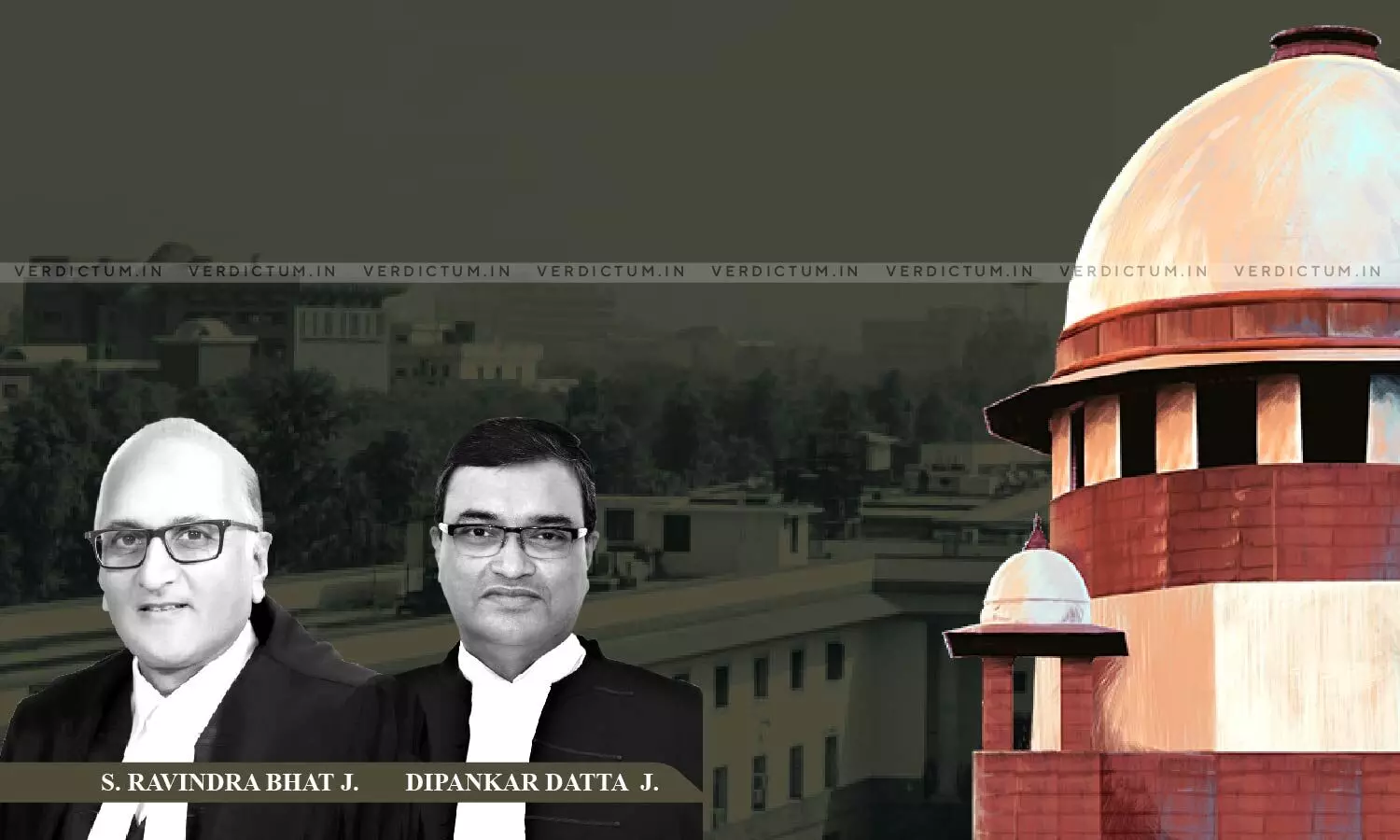
Assessee Cannot Claim Assessment Orders Are Unenforceable When He Deliberately Chooses To Be Quiet About Non-Issuance Of It- SC
 |
|The Supreme Court has held that when the assessee deliberately chooses to keep quiet, even when it could have raised a grievance about not providing copies of assessment orders, cannot now claim that the assessment orders were unenforceable.
The Bench of Justice S. Ravindra Bhat and Justice Dipankar Datta observed that “Moreover, the assessee also did not dispute that it had not received the copies of assessment orders, in those writ proceedings. Further, it did not seek copies of the assessment orders, in the representations addressed to the revenue after the second attachment order was issued, on 20.02.2018. In these circumstances, the assessee’s contentions that the attachment orders were unenforceable, because the assessment orders were not served on it, are untenable.”
M/s. Venkat Palwai Law Associates appeared for the appellant- the revenue and Advocate Chandan Mishra appeared for the respondent- assessee.
In this case, the appellant- Commercial Tax had filed the appeal against the order of the Telangana High Court by which a Writ Petition filed by the respondent was allowed. The assessee in the writ petition had questioned the revenue and complained about not providing copies of assessment order for years 2005-06, 2008-09, 2009-10, and 2010-11 under the Andhra Pradesh General Sales Tax Act, 1957 (APGST Act) and Telangana State Value Added Tax Act, 2005 (VAT Act) and for not lifting attachment order and another, revised attachment order.
The assessee alleged that since the assessment orders were not furnished to it, it was unable to examine their correctness and whether they conformed with the provisions of the VAT Act, and further enable it to avail remedies under the statute.
On the other hand, the revenue contended that the assessee had the opportunity to contest its liability in the past as a writ petition was filed wherein it had specifically stated the extent of the assessee’s liabilities, which the assessee did not dispute.
The Apex Court noted that when the appellant had filed a writ petition and complained about the Canara Bank’s proposal to auction the assessee’s properties, the assessee was impleaded as a party. There were specific averments about the assessment orders having become final. But the assessee never raised any contentions.
Therefore, the Apex Court observed that "The High Court, with due respect, fell into error, in holding that since the subject matter of the revenue’s writ petition (W.P. No. 25943/2011) was different, the assessee could not be faulted for highlighting that it had not received a copy of the assessment order. In fact, the entire premise of that writ petition was that the assessee owed tax dues, to the extent of ₹ 5,59,58,758/- and that the bank could not sell the assessee’s properties.”
Accordingly, the appeal was allowed.
Cause Title- The Commercial Tax Officers & Ors. V. Neeraja Pipes Pvt. Ltd.
Click here to read/download the Judgment